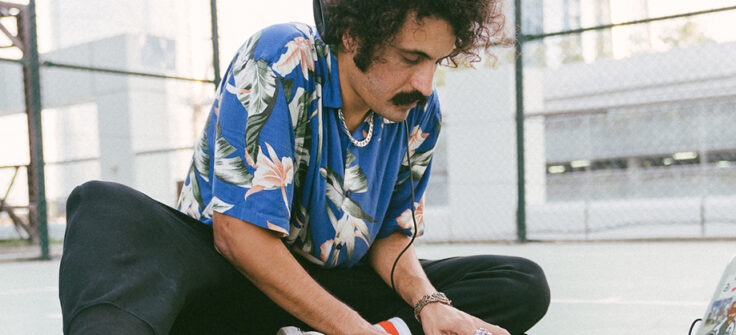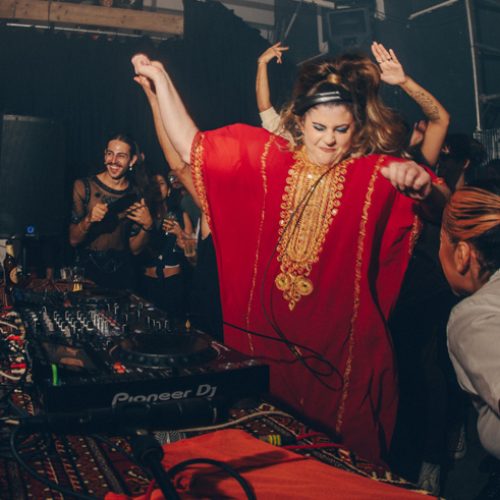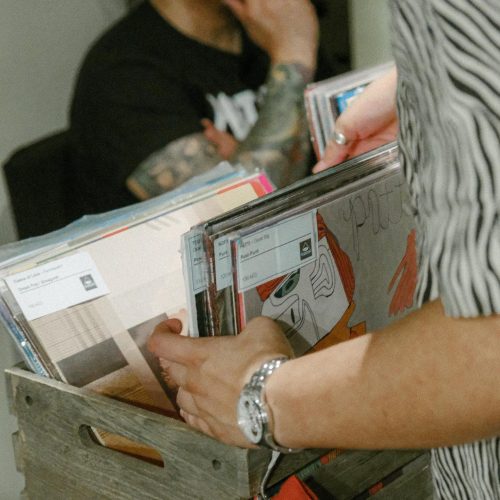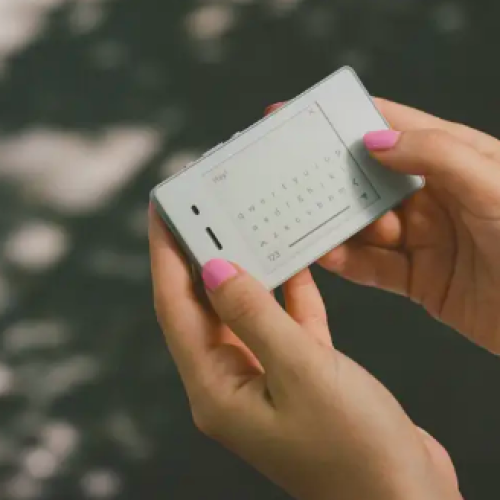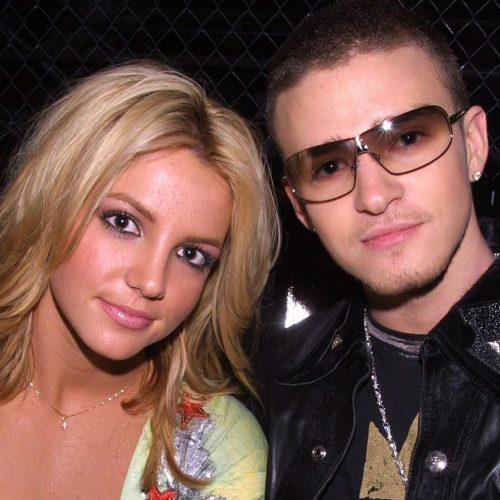If you’re in or around Dubai, you might have already heard of Karrouhat. Some of you might know him as the figure behind Arabic reggae, others might recognize him as a DJ and producer, or maybe just the dude in the local Cadillac and Burberry ads.
Throughout the last decade, he’s dabbled in just about everything to do with the industry. “Karrouhat is a concept”, he says.
After spending the majority of the last couple of years DJing some of the city’s coolest parties, he just released his first solo project: a 9-track mixtape.
The Kuwaiti-born and raised (though originally Palestinian-Jordanian) artist got his start as a musician ten years ago in Amman. But according to him, the real start happened years before he was even born.
“It was actually a really long time ago” he says. “My family name in Arabic is ‘Al 7adi’, and in the old days, ‘al 7adi’, was what they called the person who sung or played music for travellers. So, my great-great-great grandfather was a ‘7adi’, and that’s why that’s my last name. Music has always been in the family.”
But even to his fans, this anecdote is new—most know him as one of the first artists to ever produce Arab reggae. For years he toured around the region introducing them to his sound. As time went on, his fanbase grew—and so did his interests. He’s since solidified his presence in the region as a DJ, and with this new project, he’s looking to do the same as a producer.
We caught up with him to chat about his mixtape (which you can listen to here), his start in the industry, and all the musicians he considers his idols.
Tell me about your start in music
My career started at home. There was always music—my father used to be a singer. He hasn’t sung since the 60s though. Then I started ‘Karrouhat’ officially in 2008. That was our first official show. But I had been playing guitar since 2001, or 2002.
We didn’t have internet though, so I was self-taught, and I wasn’t really playing it right. Especially because I’m left handed, and I had to learn on a right-handed guitar, so until this day I’m still playing it upside down… I thought I was alone, but eventually I found out Jimmy Hendrix used to also play it upside down so it was cool.
You’re known for being one of the first to fuse together Arabic music and reggae, what inspired that?
Growing up I was inspired by a few local bands, like the Masriyeen, and another one in Bahrain called Al Ikhwa, and in Kuwait we used to have something called ‘samrat’, which are like Bedouin gatherings that I used to go to as a kid where they played music, and I was inspired by it.
I listened to rock too, but reggae came before everything. I was mesmerized by it. One of my uncles used to be really into it. He used to live in the Philippines and he used to bring me cassettes and I used to get so happy when he would gift them to me. I think the first reggae song I listened to was Bob Marley’s Buffalo Soldier, and I just got into it. I eventually started finding links between reggae and Arabic music, or like Khaleeji music, so I decided to start making it.
What’s your creative process like?
At one point I discovered that I was really good at writing in Arabic. So, since the beginning I was writing in Arabic, and at that time, there wasn’t a lot of content in Arabic—I mean now we know there was, but before we had the internet we didn’t know.
And as I write, my biggest inspirations—even if it sounds cliché now—is just the streets and my normal life. Even if it’s like a small cute love story that I go through, I’ll write about it. And it’s not just about love stuff, I literally write about everything. Like I couldn’t confront my dad about something that I badly wanted to confront him about, so I wrote a song about it. I used to have a day job, and I had an issue with my manager—and I wrote a song about that too.
And usually when I write stuff, before I even write the first line, I already have the tune in my head. So, I’m writing it already structured, with the instrument in my hand.
What inspired this mixtape? The sounds are different from your earlier work
When I came to Amman, I was working on Arabic songs that I had written and composed, and through that trip I got involved with the local music scene as it’s the place where I started, the first small gig that I did in 2005 was there. So I started to reconnect with this local scene, with the old and the new generations and I met a lot of new people.
I got so inspired from the young producers, then I took a small break from Amman and went to Bodrum, then I came back and while I was in the airport I decided to do a mixtape, I knew it was going to be electronic and that I would put it online, to have some sort a portfolio to show people that I was not only a DJ but also a musician.
I knew that the mixtape was not going to be like anything I did before as Karrouhat. That’s the way I reflect on things, even with fashion and style, I try to think of a way to disturb people around me and get them to wonder what Karrouhat is doing. It’s also a way to get out of my comfort zone. It’s 9 tracks, and the first one is really like “what the hell is Karrouhat doing?”
I just listened to my guts. It’s a very emotional process but I drew a line and I followed it. The genre is not very clear, it’s eclectic, and it’s better to just see the mixtape as whole a super Karrouhat track.
You called it ‘family first’. Is there a story behind the name?
I came to Jordan to see my family. I usually don’t see them regularly. I was feeling so dry, I was just feeling really bad—just kind of asking myself a lot of ‘life’ questions. Then I just kind of found out that we just need that family feeling, that feeling of security—it’s home at the end of the day.
Family First mixtape . link in bio ?? soundcloud
A post shared by Basil AlHadi باسل الحادي (@karrouhat) on
I wanted to bring awareness to family, because in my life, and with the youth now, and this generation, we’re more individualistic, we don’t deal with family like before. I wanted to send a message.
In 2016, I kind of had this thing—a very big statement I made which was ‘Ana o7eb Asdi9a2i’ which means ‘I love my friends’, and it went viral al hamdoulilah, then I kept saying ‘I love you, wallah’ and I mean it so much. I just wanted people to just say the words. In an easy way, without thinking about it too much. You know, in our culture it’s not easy to say this to anyone. Not just to your girlfriend or boyfriend, even to your dad, we don’t just go around saying like ‘habibi I love you’, it’s not easy.
Then I was like what’s the message for this project, so I decided to make it about family. And Shady worked his magic and made the cover with ‘family first’ written in Arabic.
Who are your musical idols?
I don’t like this question. Because there isn’t just one idol. Not even just two or three. But like, my mom used to always play Aicha Al Marta in the kitchen, and there’s another guy called Awth Eddoukhi who is a legend for me and there are bands like Masriyeen from Egypt, Ziad Erahbani who is someone I really like. From Sudan there’s Cheb Habil Ahmad, and Ahmed Fakroun.
For me also, and maybe it sounds funny—but people close to me know I’m into this. This isn’t to be like ‘oh I’m alternative’, because I listen to commercial music a lot too. But as an idol, there’s Hamid El Shaeri, he’s Libyan-Egyptian. He’s huge for me. I really appreciate him. And Hossam Hosny—he made ‘kol el banat bethebak’. He’s like a school of music in his own right. In the 90s I feel like he really represented us. There’s Hany Shenouda too, I love this guy so much.





